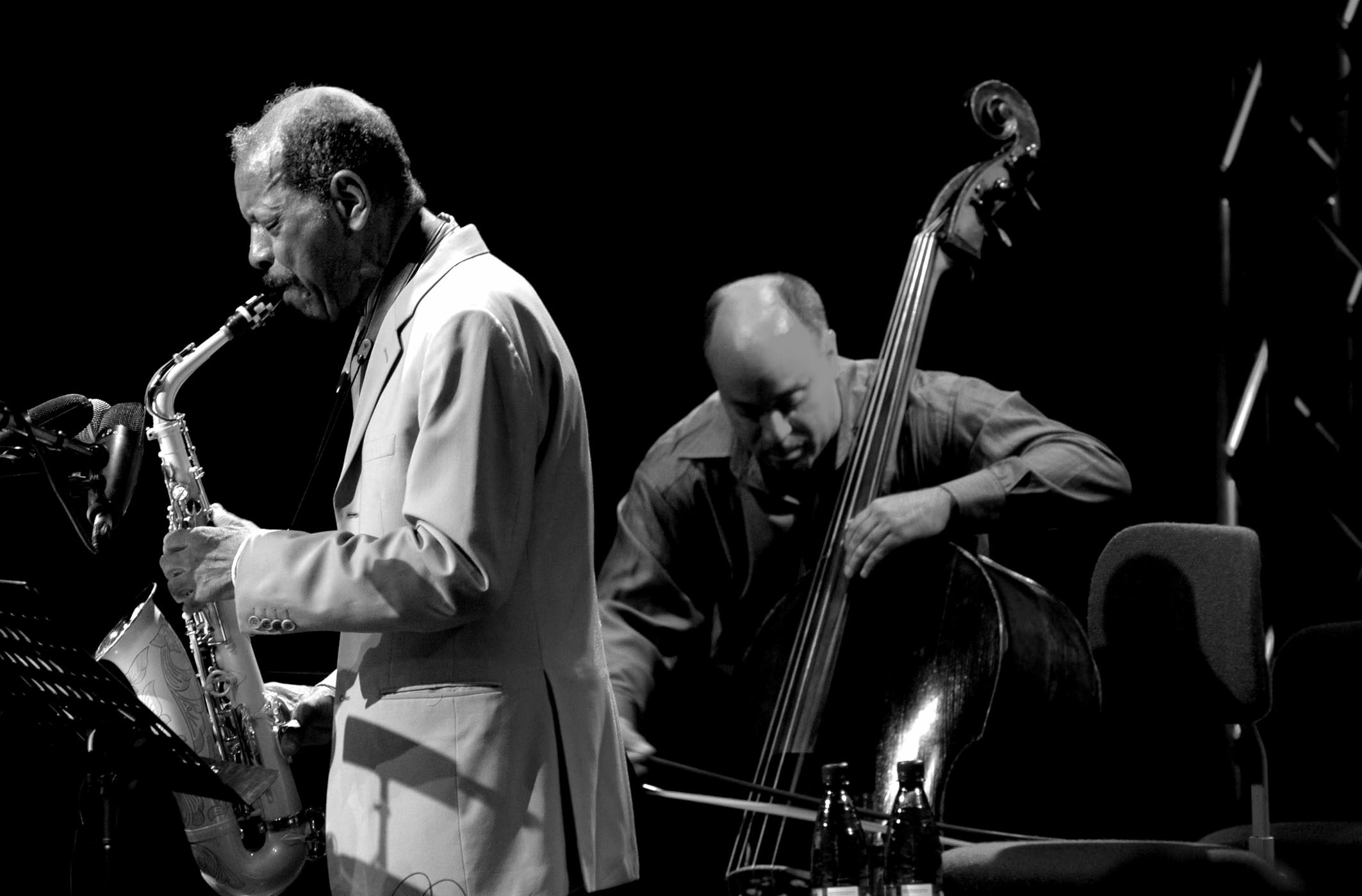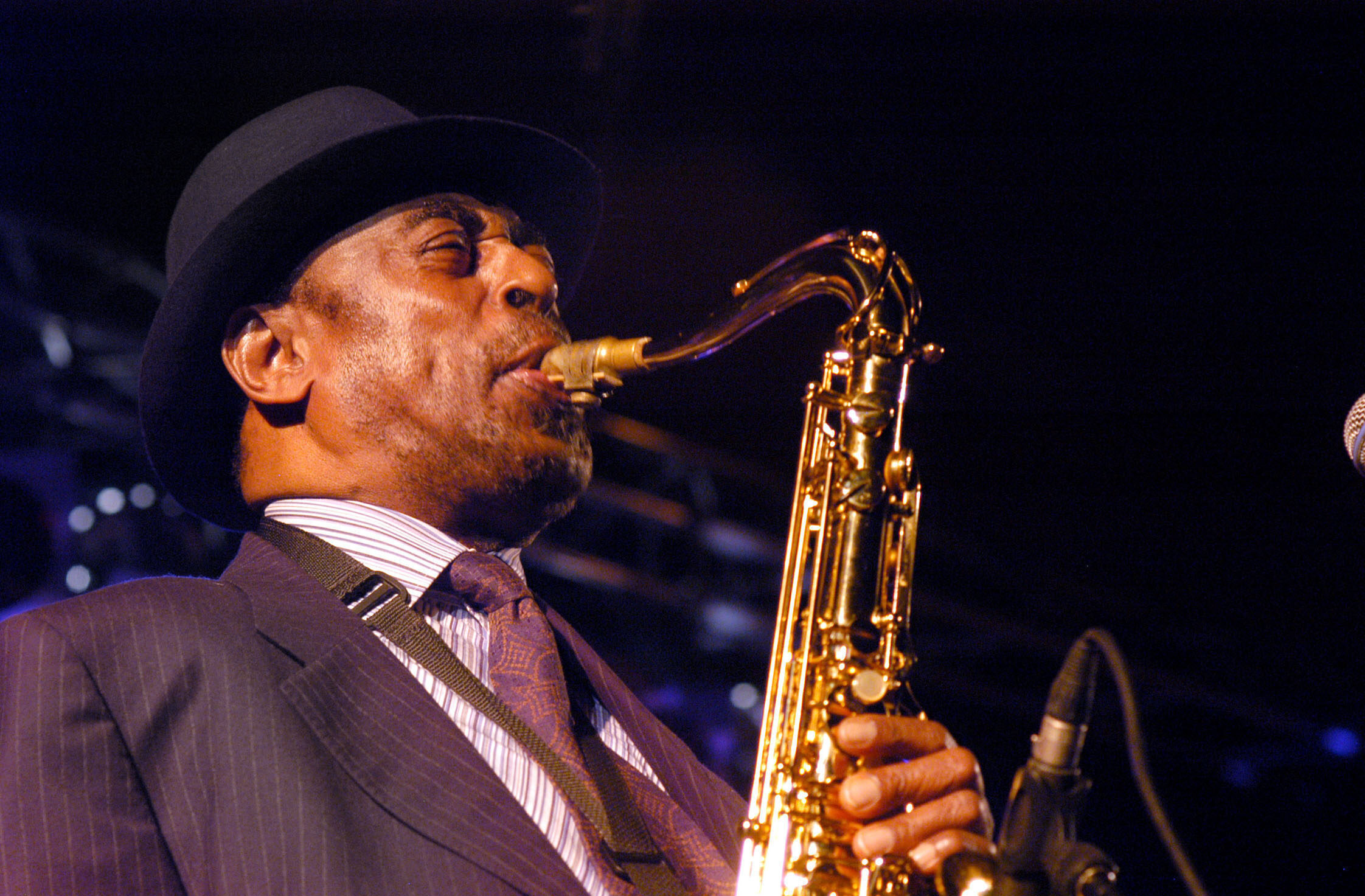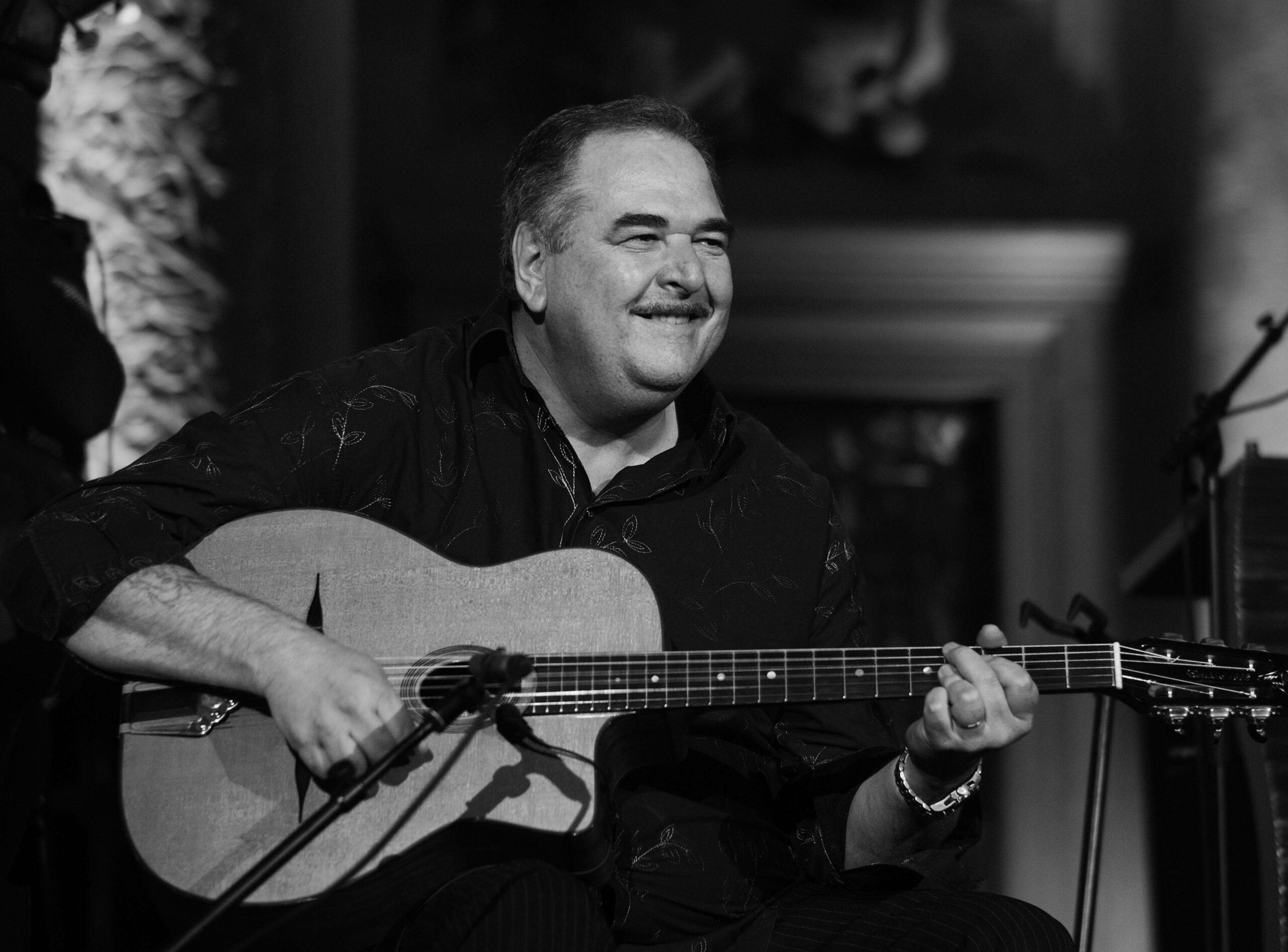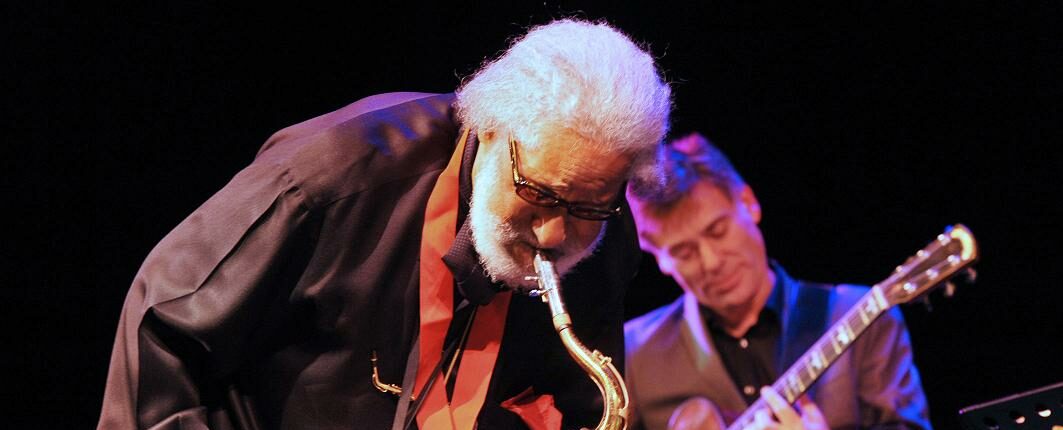(Note: The following text is an article from Jazz Podium 09/15).
Ornette Coleman, who died of heart failure on June 11, 2015 at the age of who died of heart failure on June 11, 2015 at the age of 85, is one of the most influential musicians in the history of jazz. However, his significance lies not only in his groundbreaking recordings from 1958 to 1960: from his debut "Something Else! The Music of Ornette Coleman", which was poorly marketed and barely noticed at the time, to "The Shape Of Jazz To Come" and the album "Free Jazz. A Collective Improvisation". His significance lies particularly in the educational effect of his work, i.e. in the fact that his work has always pointed far beyond itself to the very end. Above all through its own consistency, through the purity of its musical will, which was often perceived as an attack.
Coleman, this free-spirited autodidact, was a pioneer of the new, but he was not the "liberator" of jazz, as was often reported on the occasion of his death. (As is well known, the album title "Free Jazz" not only means, in an appellative sense, "liberate jazz", but also, in a descriptive sense, "free jazz"). The "New York Times", for example, used the beautiful phrase instead in its obituary, Coleman "rewrote the Language of Jazz". The term liberation, on the other hand, should be used very carefully. Because jazz has always been free. That lies in the nature of the music. As an abstract art, as a structure of signifiers without signifieds, which knows no lingering, no monumental statics, but rather takes place fleetingly and dynamically in time, it is already free in itself and the freest of all arts. All its rules, and Coleman also has one, serve one purpose above all: to make freedom divisible and thus a collective event. Incidentally: The entire history of the development of jazz could easily be read, even without the great solitaire Coleman, as a creative disregard and expansion of traditional boundaries. But Ornette Coleman, through his actions, has considerably expanded our thinking and knowledge about music, and jazz in particular - and of course the forms of expression of the genre. This expansion of the collective concept of possibility, which was often perceived as a shock and with great incomprehension, especially at the beginning of Coleman's career, and which went beyond almost everything that had been known until then, was and is an inexhaustible source of inspiration for many.
His system called "Harmolodics" served as a theoretical expression of this expansion, which he understood not only as a doctrine of jazz, but also as a doctrine of life and of being human. It has largely remained a myth. The great explanatory work on music theory that Coleman had repeatedly announced over 50 years never appeared. Partly because even his closest collaborators reportedly considered the sketches, about which little is known to date, to be illegible. As a result, musicology has constructed rather than reconstructed Ornette Coleman's systemic considerations by means of a work analysis; and thus - an interesting but not uncontroversial scientific trick - declared Coleman's practice to be theory.
There are, of course, reasons for this. All attempts known to me to elicit substantial technical or programmatic details about Coleman's theory, which according to him connects everything, remained impenetrably fragmentary, whether in written or oral form, ended in esotericism or failed due to the limitations of verbal language. It is not without irony that his harmolodic system has nevertheless developed into a kind of mystical jazz cipher. Coleman is a little like the writer Thomas Bernhard, whose impressive skills included the targeted but ultimately (deliberately) superficial appropriation and amalgamation of philosophical ideas in particular. In Coleman's work, approaches from epistemology, cultural and linguistic criticism, the natural sciences, spirituality, social philosophy, mathematics, harmony and music theory - some clever, some rather naïve - merged to form a system called "Harmolodics", which, reduced to the genuinely musical (which Coleman would have rejected, by the way), represents above all a form of organization and interaction in which, under the primacy of the greatest possible individual and collective freedom, is improvised over linear series of intervals and in which there are certain constitutive preferences and, as a rule, actual guidelines with regard to tonality, meter and melody.
It almost seems as if, after the early years of open hostility, Coleman increasingly enjoyed being perceived as the great, serene, incomprehensible, deeply introverted and yet unyielding lateral and progressive thinker through the independence of his theorem, which was inscrutable to outsiders. The subtle irony of the harmolodic system, never addressed by Ornette Coleman himself, is that the free man, Coleman of all people, needs a system in order to show the world his freedom or to be able to live his freedom (musically) at all. Behind this is the experience, which is not only significant in a musical sense, that on the one hand there can be no absolute freedom and on the other hand we cannot recognize and evaluate freedom in absolute terms, but always need an antagonistic counterpart - in Coleman's case an overloaded holistic system.
Coleman famously preferred instrumentations without a harmony instrument. In the course of his career, he only played with a few pianists. However, he cultivated an intensive human and musical relationship with Joachim Kühn over many years, documented on the live recording "Colors". The fact that Kühn was also a European pianist speaks for Ornette Coleman's fundamental openness. He didn't care about boundaries of this kind anyway, although he was naturally aware of them around him. He had once said to Kühn, both approvingly and comfortingly: "If you were American, you would be as famous as Keith Jarrett. "Fortunately, Kühn then went on to have an impressive career. And that is almost an understatement: Quite a few people are of the opinion that he led the best piano trio in Europe to date.
A few days after Coleman's death, I met Joachim Kühn, who had been living in Ibiza for a long time, by chance at the "Jazz and Joy" festival in Worms, where we naturally talked about Ornette Coleman. Kühn had already worked with Don Cherry, one of Coleman's closest musical partners, immediately after moving to Paris in 1968. "When the time and opportunity came to play with Ornette," says Kühn, "I was perfectly prepared thanks to my own musical experience. It worked from the very first moment. I didn't have to pretend at all. Ornette himself always encouraged me to be myself and not to follow him. This genuine equality, which he valued, meant that I wasn't able to realize myself completely freely in our work together, which lasted six years after all." Kühn still remembers this phase from the mid-1990s. Off the top of his head, he knows that they played exactly 16 concerts together, initially as a duo and later as a quartet. Coleman wrote at least ten new pieces for each of these concerts - around 1,70 in total, although he only ever sketched out his pieces. Even if, like Kühn, you could follow these sketches, it was impossible to play them at sight or to learn them from the notation. In order to understand a composition, Coleman first had to play it. This is likely to make the utilization of the estate somewhat complicated.
But then, in passing, Kühn reports a veritable sensation in our conversation: "Before every concert, Ornette had me fly from Ibiza to New York, where we rehearsed for a week in his wonderful Harmolodics studio and recorded all these new pieces. Incidentally, I have a copy of each of these recording sessions. In total, that's about 500 hours of music". These are audio documents from one of the most exciting and creative phases of Coleman's career. One can only hope that his son and longtime drummer, Denardo, who watches over the estate and owns the rights to the recordings, will one day unearth this treasure. will one day unearth this treasure. There are no signs of this (yet). But at least we now know that presumably hundreds of Coleman's never-published compositions need not necessarily be lost with his passing.
The work of two other German musicians is closely linked to Ornette Coleman: Ingrid Sertso and Karl Berger, both pioneers of "world jazz", among other things. Alongside Berger and Sertso, Coleman was one of the three founders of the "Creative Music Foundation", a non-profit organization that has a non-profit organization just outside New York that has been in existence for almost 45 years. Its philosophy is like an institutionalization of Coleman's ideas. Music is understood and promoted here as a meeting place and exchange platform, as a "healing energy", as a "universal language" that is essential for our humanity. In a rather personal portrait of Coleman for the magazine "Wire", Berger wrote, also on behalf of Ingrid Serlso: "Coleman is the reason why we do what we do." He vividly describes how Coleman's approach was more spiritual than intellectual. Among other things, Berger quotes Coleman with a sentence that is to be regarded as a leitmotif and which has conveyed his understanding of music, which always included his understanding of man, more perfectly than ever in the language of words: "His idea of music, according to Coleman", "allows every musician to be part of every musical context without changing his own personality, his own tone or his own way of phrasing".
Berger, who can certainly be described as a Colmar intimate, considers the debate about the significance of the harmolodic system to be misleading in one respect. "Ornette never had a comprehensive, music-theoretical 'work' in mind," Berger recently stated. "The whole idea is that he doesn't engage with the Western idea of tonal material at all, instead focusing on 'sounds' that are unrepeatable, i.e. that consist of ever-changing 'harmonics', as the phenomenon of overtones/partial tones is called in English. A tone is therefore always a multifaceted sound. Everyone has a very individual way of hearing and playing sounds. When playing together, this hearing and playing can harmonize. The more you play together, the more refined this process becomes. That's why Ornette did so many rehearsals. They had little to do with the material. It was about playing together." An impression that certainly coincides with the experiences of other musicians such as Joachim Kühn and points to the holistic nature of Coleman's approach.
The following interpretation is probably the most likely with regard to the large treatise on the subject of "Harmolodics", which never appeared: Coleman himself indisputably announced a theoretical work time and again - very early on in his career, i.e. at a time when he was most heavily criticized and at times even withdrew completely from the scene. He also communicated fragments of it many times, mostly verbally. The idea of being able to condense his conception of music into a theoretical work probably helped him at the time to fictitiously simulate the significance of his ideas, which was not yet generally recognized at the time, and perhaps also to suggest that they were a completely new, hitherto unknown, declinable form of music. universal logic of a profoundly human way of making music. Coleman's vision was so far-reaching that his biggest problem was communicating it. As we know, there are numerous examples in the history of music of how ears first have to be opened to something new and perhaps even conditioned. Supporting this opening up through non-musical and scholarly means in book form is not an entirely absurd idea. Especially as Ornette Coleman, who came from a humble background, had a great penchant for the sciences throughout his life and was very broadly interested.
It is important to remember that at the beginning of his career - both on the saxophone and as a composer - Coleman was regarded by many as a kind of nihilist who had set out to destroy music, as the trade journal "Downbeat" once put it. His sound was perceived as grumpy and, in its lack of polish, counteracted the still omnipresent virtuosity of bebop. Coleman also broke the harmonic corset and replaced it with a new form of collective improvisation, which, according to a false impression of his contemporaries, supposedly managed without rules. The initial outrage simply ignored the fact that Coleman drew on the tradition of bebop (but not exclusively) and always remained committed to the blues. Coleman was in danger of failing. Although he certainly had prominent advocates. The musician, composer and music teacher Gunther Schuller, who also died recently, was probably the biggest, or at least the most comprehensive Coleman supporter from the very beginning. Immediately after Coleman's emergence on the scene, he recorded with him, taught him classical notation and wrote the line notes for the LP "Ornette! "It was also Schuller who brought Coleman to the legendary Lenox School of Jazz, a multi-week training program for young jazz musicians that existed from 1957 to 1960 and today enjoys a legendary reputation as an avant-garde talent factory for jazz. Because other unsuspected aesthetes such as the Third Stream aesthete John Lewis stood up for him early on and because some of his compositions, such as "Peace" or "Lonely woman", which were still recognizably oriented towards the classical song form, very quickly found their way into the jazz canon, a phenomenon very rare in this form in art gradually emerged. Although Coleman has always remained alien to the cultural establishment - because it was often not understood that his music was not at all designed according to the usual categories of understanding - the opinion prevailed that this musician of obviously epochal significance had not yet been sufficiently appreciated. So Coleman finally enjoyed a kind of anticipated posthumous fame. A paradox appropriate to him and the incomparability of his music. Especially in his In his homeland in particular, the queue of those waiting to erect a monument to him grew longer and longer. The great opportunity to do so unexpectedly presented itself in 2007, having begun two years earlier in faraway Ludwigshafen. The accompanying story, the punchline of which went around the world, is told here for the first time by one of its protagonists.
It all began with a missed opportunity. In 2004, Rainer Kern, director of the Enjoy Jazz Festival, was in New York when Ornette Coleman was performing at Carnegie Hall. But Kern already had an appointment that could no longer be postponed. "That very evening," says Kern, "I decided, partly to console myself, to invite him to Enjoy Jazz the following year." The question of a suitable venue remained. Kern had in mind a prestigious philharmonic hall that would make Ornette Coleman's value recognizable to everyone in advance. For Kern, the free jazz pioneer was and is "one of the most important contemporary artists across all genres". The best concert hall in the region is located in BASF's Feierabendhaus in Ludwigshafen. As the company is not only a sponsor, but also a concert partner of Enjoy Jazz, Kern suggested inviting Coleman to invite Coleman there. A considerable economic risk. The hall holds an impressive 1200 people and free jazz is not exactly a crowd puller. Moreover, Coleman had not performed in Germany for ten years. On top of that, his humorlessly high fees were among the highest in the industry. Kern was able to convince BASF to take this risk. What's more, following a hunch, the festival director recommended increasing the already generous budget and having the concert professionally recorded. "At the time, nobody was thinking of a CD release. nobody. We simply decided to give Coleman, whom we had of course informed of our intentions in advance, the recording after the concert," recalls Kern. "Somehow we felt that was an appropriate gesture." A gesture that turned out to be a stroke of luck for jazz and for Coleman himself.
The critic Konrad Heidkamp, who sadly passed away far too early, wrote in "Die Zeit" about the concert, which was sold out against all expectations, that Coleman "lets the notes bounce and catches them again, talks to them and lets them rise like a balloon with the note hanging from it, Be yourself!" Fortunately, one of Heidkamp's fears did not come true. He wrote, agitated and dismayed, of "an evening that is one of the great lost moments in jazz history in Germany" because an originally planned radio recording had not materialized.
As is well known, the concert was recorded anyway. "I listen to a lot of concerts," summarizes Rainer Kern, "but what happened on stage that evening and was transmitted to the audience was not an event of the century. I'm usually really reluctant to use superlatives, but it was the best concert I've heard in my life. From the very first note, you felt like you had been thrown out of your normal orbit. It was beyond all expectation, all imagination and all previous experience. This concert hit you with full force, shook you up. It was so intense that you had to be able to endure it. It was more than a concert, it "depicted" the world exactly as it was at that moment." Coleman himself expressed it on stage in Ludwigshafen as follows: "I felt so much human experience that evening." And that's exactly what it was: an intense musical experience that took everything outside of music for granted.
Just over a year later, the recordings were released on Coleman's own label under the title "Sound Grammar". The CD was enthusiastically received by critics. Demand exceeded expectations and the album has now been out of print for years. This is regrettable, especially as this October marks the tenth anniversary of the concert. However, there is a glimmer of hope: Denardo Coleman recently held out the prospect of a re-release as part of a planned box set.
Coleman received the Pulitzer Prize for the concert recording, the most important artistic honor one can receive in the United States. It has catapulted the saxophonist to a whole new level of social and artistic recognition. However, in order for Coleman to receive the award at all, the statutes of the Pulitzer Prize had to be bent like unruly steel. And in three respects. Firstly: according to the statutes, the prize is to be awarded for "an outstanding composition". Coleman, however, was honored for a recording or a complete album. What's more, this is an album in which the unusual line-up as a quartet with two double bassists and the unique understanding of playing are at least as significant as the underlying compositions themselves themselves or cannot be separated from them. Secondly, this is the first and so far only time that largely improvised music has been honored. And thirdly: Coleman was not even among the original 140 nominees. The jury first had to make use of its right of nomination to put him on the list after all. It almost seemed as if it was clear to everyone involved that "Sound Grammar" would be Coleman's legacy, his last, brilliant drumbeat, a late monument to his own uniqueness. It is therefore certainly no coincidence that he was also awarded the Grammy for his life's work in the same year, 2007.
When I wanted to interview Ornette Coleman a year after these honors, in October 2008, on the sidelines of a concert in Heidelberg, it took an armada of advocates to get through to him. The tour management finally gave their consent on the condition that the interview would be stopped immediately if it turned out that Coleman, who was visibly mentally fatigued at times, was talking without concentration. Fortunately, the manager positioned himself out of earshot and observed the scene skeptically. It was during these moments of the conversation that I noticed for the first time that Coleman's facial expressions had changed in recent years, which is also documented many times in late photos taken away from the stage. On the one hand, there was this almost unwavering, inviting, mellow smile that took up the lower two-thirds of his face. Yet his gaze remained peculiarly defensive, in a skeptical, non-aggressive sense, as if the lack of understanding and rejection he had experienced were indelibly inscribed on his face or had at least become more present again in old age. This characteristic smile formed a permanent contrast to his watchfully furrowed brow and often slightly narrowed eyes. As if he still had to be ready to defend himself against attacks at all times. A late reflex, perhaps. Because the days of hostility towards him were long gone.
Incidentally, neither in real time nor when listening to the tape did I understand anything of what Coleman was telling me in his peculiarly quiet, always a little hoarse manner - as always with the attitude of an understanding teacher against his will, which made him seem even weaker than he already was. As always friendly and, by his standards, very informative, he talked about a kind of subcategory of his harmolodic system, which he described as "sound grammar". But Coleman spoke as he played: he had a theme from which he could move freely and associatively in every conceivable direction, making it impossible for the listener to follow him until he suddenly found his way back to his original theme. This was no problem for him. For him, the intellectual approach to things was only a rather overrated preliminary stage to the great emotion and passion in which one should ideally recognize and realize oneself. Our interview was therefore a kind of meta-communication that merely masqueraded as a conversation, a holistic puzzle, a challenge, a direct expression of individual existence and humanity - and sometimes just pure madness. pure madness. However, this communication was always charismatic. While I pondered, somewhat perplexed, whether Coleman was just overtaxing my decoding skills or I was overtaxing his aged mental powers, he had long since given me a lesson, imperceptibly and with quiet humor. But I only realized this years later.
Because once you have understood that something is so big (or even just so different) that you cannot understand it, you have two options: Rejection, because one's own horizon defines the limits of meaningfulness, or recognition, because, on the contrary, meaningfulness lies in the experience of the limits of one's own horizon. The most important difference between Coleman and his (former) opponents as well as his admirers and successors is and remains the fact that he was the only one who did not ignore this limit that defines our individual consciousness; it did not exist in him and therefore not for him.
Ornette Coleman put it like this in our last conversation: "Man is in the wonderful position of being able to accept everything he believes in without any hint of destructiveness. It is a central insight of being human that you do not necessarily have to reject or destroy something that you do not understand or do not understand immediately." And he concluded with the sentence: "I believe this because I only believe in one story, that of ideas. "In this sense, there has probably never been a freer musician and perhaps a freer person than Ornette Coleman. His visionary power and unconditional artistic integrity have changed the world of jazz - and with it everyone who moves in it. And this seems to me to be a central point in the history of art: True significance can be recognized, among other things, by the fact that someone influences his supporters as well as his opponents, to put it quite value-free. Ornette Coleman did exactly that. In his own friendly but extremely consistent way, because Coleman's music was never just music for the head. It always had a body as well. Her departure was pulsating, rhythmic, physical. Her pure power tore down walls. And where they are most difficult to tear down: in people's heads. Because Coleman's music is nothing less than a symbol of life itself - okay, one of many possible lives, but certainly one of the best.
So all that remains for us to do is to bow down before this lifetime achievement.
It will remain unique.
Photo: Manfred Rinderspacher

Date: December 18, 2023




